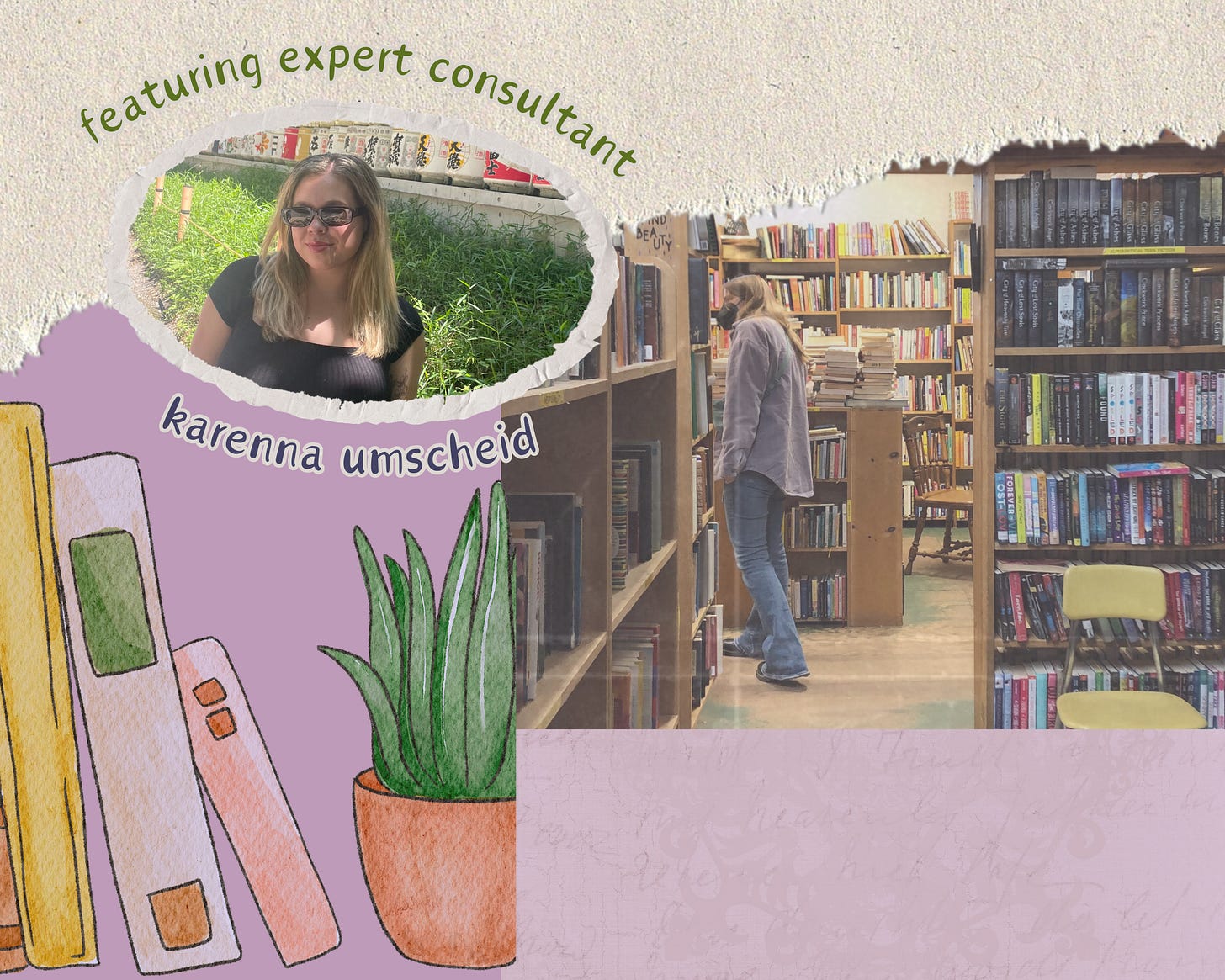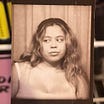The Art of the Bookshelf Examination
The only judgmental bitch worth penalizing is she who is uninformed.
A great number of ways exist to preoccupy yourself at a party at which you’re unfamiliar with the grand majority of attendees. The elite liberal arts school student lobe within my brain emphasizes the Industry ABC’s: Always Be Connecting. One of my dearest friends never fails to lock lips with around three strangers (the ratio always favoring her fellow women) before exiting the function. My partner likes to make a list of headlines from both The New Yorker and The New York Times before a soiree, topics to employ at the random whilst also sounding unbelievably obnoxious. This is done with a degree of self awareness that makes it impishly endearing as opposed to insufferable— it is a bit being employed for our hushed amusement, not a sincere action. I prefer to take stock of my host’s reading habits.
A bookshelf is a concentrated manifestation of its owners’ interests, passions, and avocations. You can tell more about a person by examining their bookshelf than any other piece of furniture or particular decoration. Posters and pictures hold up substantially, but are often spread out, spaced too far apart to glean much information. Despite the name, one does expect more than just books to don the shelves— a cutesy trinket, a sentimental knick knack. In play together, a carefully curated picture of personality is created, an intimate display of naked interests propped up against a random wall.
My books float around with me to and from college and Chicago and any other random excursions, but they typically are laid to rest on the bookshelf in my childhood bedroom. Visualize teal walls and furniture crafted from warm toned wood, complete with a window the size of my bed frame. I consider them my collection, my excuse for owning more books than I have read. The ratio is embarrassing, my future conquests take up more space than those I’ve already consumed, so much so that the stacks have been reoriented to vertical. An entire row is made up solely of Rick Riordan’s work, treasures from elementary and middle school, separating what I’ve read from what I have yet to. Notable items include a deceased relative’s vase, a mini chess board sporting shades of pale pink and cappuccino, and an incense holder disguised as a tarot card (no. 0, The Fool). Spot the three copies of Anne of Green Gables: a mustard clothbound copy missing its dust-jacket, a pint-sized baby blue hardcover sporting florals from cover to cover, and an edition completely in Turkish, a birthday gift from a friend’s Istanbul homecoming. There are two versions of Wuthering Heights (a book I have yet to even open) simply because I preferred one cover to another, they were both cheaper than dirt, and I have the same Myers-Briggs as the protagonist.
She (the bookshelf in question) is sloppily arranged and severely congested, a messy mind materialized and populated with impulsively purchased titles. I do believe that one day I will read the memoir of Johnnie Cochran, the late OJ Simpson’s also deceased defense attorney. This day is far in the future, when I am old and a couple shades frailer than gray, and there are no more Donna Tartt novels for me to digest. If I were to stumble upon her (you’d be just as drawn to the descriptive use of the feminine pronoun if you observed her womanish frame, erect in her place), I would vault to the conclusion that it’s owner is made up of more ambition than motivation, and is equal parts sensitive and cynical. She is both ageless and evidently adolescent, or at least so sentimental of her own adolescence that she’s preserved it on cherry wood.
The bookshelf stationed in my apartment (I use that title reluctantly, as my name does not make an appearance on the lease) is a communal being. The four of us that live here, aptly known as the benevolent boys on the lease and the girlfriends they house, have populated the shelves via a team effort. In lieu of the Riordan Row, eyes now dart to the string of Kurt Vonnegut Jr.— seventeen different selections from eight different editions, procured mainly by my partner. We have a small Japanese literature section along with two collections of poetry. Our collection of CDs, along with their small and square player, reside in the very middle. A ceramic walnut filled with my assorted crystals is used as a bookend. Nearly every item has been bought secondhand.
I am obnoxiously in adoration of this particular piece of furniture and all that inhabits it. On the few occasions we’ve had company I’ve consciously led guests toward it, goaded them with leading questions. I puckishly pine to be asked for a ranking of my favorites. I desperately wish to talk about why Elif Batuman juts out beside Gillian Flynn. I want each onlooker to know what belongs to who and the means by which we acquired them, used or new, gifted or purchased. Ugh, the dead air just droning on and on under this conversation is so draining, right? Shall I perhaps slide in McCartney’s Ram? I am legally obligated to shoehorn the album into every conversation, whether face to face or with a revered reader. Smiles and kisses!
Little effort is required for a bookshelf scan once you discern what it is that you’re looking for. First, a disclaimer accompanied by an impish grin, a la someone who has just been caught acting in an acceptable range of naughtiness: oh, everything must be enjoyed by someone, and what is in my cup of tea (typically peach) may not tickle your taste buds and vice versa. This is partially in jest and fun. On the other hand, you’re probably aware of exactly what atmosphere you’re interested in entering. As am I— I do not tend to cultivate a community of those who own Infinite Jest in hardcover, mass market paperback, and the behemoth of a large print edition.
My suggestions: immediately check for at least one nonfiction title— if your search turns up empty, consider leaving, or at least ditching your drink (when babysitting, remain sober). The same can be said of a collection containing exclusively coming of age novels. An undoubtedly pretentious take, sure, but I’m comfortable enough with it to advise these readers to wake up and smell the disillusionment. Hold my hands and we can grow up together.
Specific authors: I have never not found Margaret Atwood anything less than overrated. My evidence is the mere two books of hers I’ve invested in, an obscure fiction piece and a poetry collection consisting of maternal menagerie. I have watched several video essays in which Colleen Hoover books are read theatrically between giggle breaks, and therefore contain little respect for her work. I have a very visceral aversion towards Tim O’Brien, and no interest in reconciling with his writing. I always compliment owners of Carmen Maria Machado’s work, the same goes for my favorite playwright, Sarah Ruhl. As far as essayists are concerned, I am an ardent addict of Roxane Gay, her most recent release being some of those most evocative cultural criticisms I’ve consumed in a chunk of time. I love and hate many more books and their authors, I could forget an entire plot but never my reaction to any work.
A dear friend and fellow witty woman, Karenna Umscheid, graciously agreed to chip in some advice for this piece. As far as specific authors go, she has scraped clear lines in the sand: Joan Didion and Eve Babitz are worth literarily lusting over, Stephen King and James Patterson deserve a good dethroning. Essay collections are swoonworthy. Smutty romance novels are not (“smut is for ao3 or fanfiction.net, not for literature. sorry 2 be pretentious but it’s true”). Historical nonfiction is bookish beige, a glaring red flag if written under a limited perspective, or offering a story from feverishly festering to plainly stale.
My manifesto to be peddled to the masses lacks all real weight, and intentionally so. But one can hope for a more well-read world, or at least an entertaining social circle. Don’t steal any rare finds, but make sure to leave a scathing annotation in the most groan inducing book you find. Leave a sexy little pair of panties in the best one.
One last bookshelf, as a treat for really sticking with me here. My mom’s books are positioned behind glass, on the shelves of a richly lacquered hutch positioned above one of her two desks. Her typical work day consists of multiple Zoom-esque team meetings during which each title is entirely visible. There is both a dictionary and a thesaurus, along with a couple memoirs of obscure disease survivors (who would not have had to overcome such obstacles if they just received their Pfizer vaccine as designated) and a stack of travel books. My favorite spine sits almost directly in the middle— Grey, the retrospective final addition to the Fifty Shades of Grey series completely from the perspective of love interest and sexual sadist Christian Grey.




